
Developer: Shining Pixel Studios
Publisher: Iceberg Interactive
Platform: PC
Tested on: PC
Oriental Empires – Review
The human mind will always, when encountering something new, compare it to what it already knows. This makes it difficult for any game not to be judged by its cover. Over the years we’ve enjoyed many great many real time and turn based strategy games. So how does one stand out in the crowd when every first look screams Total War and Civilization? When properly executed who could say no to the love-child of Total War and civilization? Exactly no one could.
Story
Since the dawn of man our little planet has seen many empires come and go. Ancient civilizations like the Roman and Greek to far more recent colonial times where the British Empire at the height of its power covered about one quarter of the world’s landmass. The Galactic Empire from Star Wars also didn’t last forever. But the idea of total domination has always been on our minds and makes a great plot in any game. While most of us will be familiar with European history, the East can hold its own when it comes to forging empires. China, the country as we know it today used to be made up of settlements and local rulers until it was finally unified. Oriental Empires might not be entirely historically accurate it does shed a light on their history and culture. Choose one of the twenty-four available factions and start conquering your neighbors. The story which is rather limited is presented mostly in text form in combination with spoken dialogue. While the story might be lacking, specific events and the technology tree will provide you with much background information.For example one might research a law that states nobles must attend court. This law will set some events in motion and provides tidbits of story.
Graphics
Visually the game looks stunning despite the fact that it’s made by a rather small development team, you can see the passion they have put into the game. The zooming range is incredible, If you zoom in you can see the details of the characters, buildings and the environment. The battles on the other hand are rather clunky and not very interesting to watch. This is something the Total War series has also struggled with in their early iterations but they perfected it over time. So credit must be given for a valid attempt.
Sound
The music remains pretty much in the background but does have an Eastern feel to it in melody as well as the instruments used. In the field, the sound effects are adequate to help you get an idea of what is going on, arrows firing, swords and spears clashing or catapults firing. The spoken text is decent and helps with immersion.
Gameplay
Oriental Empires is a turn based strategy game. Any real time or turn based strategy fan will immediately spot a lot of similarities between Oriental Empires and the Total War series. And they would be right to do so, as some people that worked on that series also had a hand in designing this game. This however does not make Oriental Empires a Total War clone. Another thing players will directly recognize are the hex-tiles that divide the map into pieces. These tiles play a role in where you can build and how far your units will be able to move any given turn.
Any strategy starts with choosing a faction, sometimes this is purely a cosmetic thing but any game that wants to create depth really puts a lot of work in their factions. Since all of the twenty-four factions are in fact humans in China, the difference between them will have to come from perks, stronger units, faster research, happier civilians, loyal bannermen etc. In the same fashion a faction might also have negative properties. Once a faction is chosen your location on the world map is fixed. The map itself looks beautiful and has a great range of zoom abilities. You can zoom out entirely to regain oversight or zoom in and watch your people work and troops fight. Yes, that means there are no loading screens in between moving your troops and fighting a battle. This has a few pros and cons. While the Total War series has a clear split between working the world map and fighting, Oriental Empires does not. This means you have no new controls to learn when heading into battle but means you have less tactical options available. You can take advantage of the terrain to give your ranged troops an advantage or lay an ambush but you need to do it all in the world map which is still a tile based map. At first, it’s really exciting to zoom in on the battle but after watching the battle unfold and watching the clunky movements you quickly zoom out and click the fast-forward button.
The game generally consists of two phases, a planning phase in which can move units, construct buildings, research technology, conduct diplomacy and set tactics of your military units. Once you end the turn, all player’s actions will be executed. Armies will collide and spontaneously start the battle; no human interaction is possible at this time. This means the fighting aspect of this game is rather limited. If you told your archers to drop their bows and charge into cavalry they will do so, no changing your mind. The military aspect of the game is no match for the Total War series.
At the same time, you need to evolve your cities by working the surrounding terrain and constructing new buildings. Those new buildings might become available after research so that ties in together perfectly. There are four categories; Power, Craft, Thought and Knowledge. Each faction seems to have the same tech available to them which diminishes the difference between them. This aspect does shed some light on the evolution of Chinese culture but does not have a major impact on the game itself. Some of technology seems forced into a category or dumped into the more general one, Knowledge.
Oriental Empires attempts to add another layer of gameplay on top by expanding upon the happiness/loyalty of your people. A lot of statistics about your towns/inhabitants/nobles can be found in game if you know where to look. If not managed properly you might be looking at an all out rebellion of your entire empire. Many events influence these statistics, some can be controlled or enforced by laws others are completely random. For example, you can force nobles to live at court, at first they won’t be happy but you’ll be able to keep a close eye on them. An outbreak of disease however is often out of you control and if not dealt with, might spread to other cities with disastrous results. Once a town falls into disarray and open rebellion you’ll need to send troops to recapture it but be aware of that the troops you send might join the rebellion if not accompanied by a loyal commander. This all makes sense when you know it but the lack of explanation makes it so that many people will most likely run into this turn of events and have no clue what just happened to them. The overall economical side of the game has a lot of things going for it but the lack of proper guidance is a serious downer.
Conclusion
Oriental Empires is a playable game with a lot of great ideas based on several very successful games in the genre but lacks a little in guidance. Since it has a certain complexity this means that if you’re not willing to research and sometimes face defeat because of unknown circumstances then this game is no good for you. This is not exclusive to this title but often found in the genre to a certain degree, however the completely random events and no explanation what so ever makes the game feel broken at times. It does however succeeds in putting itself in between of Total War and Civilization even with a much smaller budget than the aforementioned titles
Oriental Empires - Review,

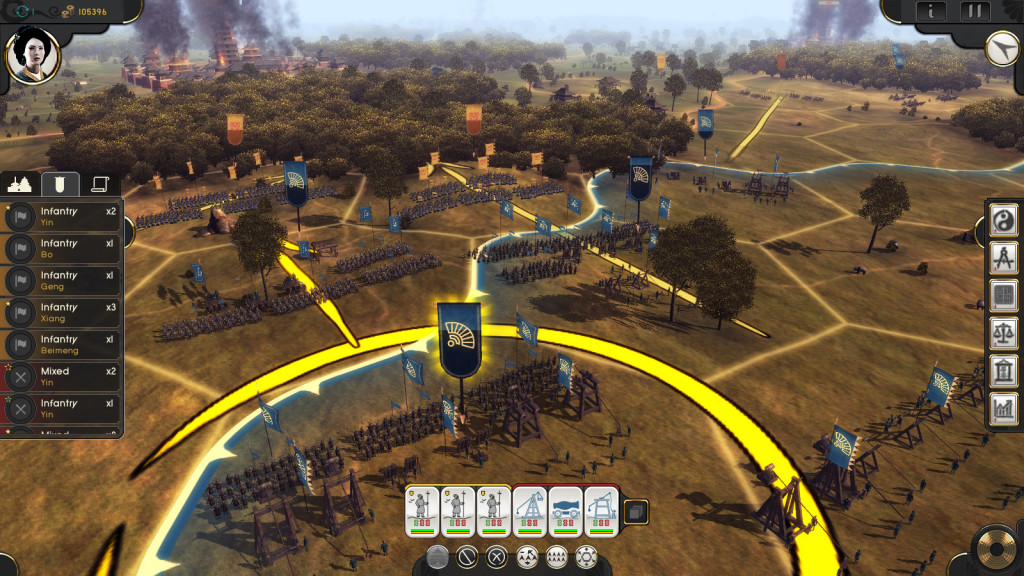
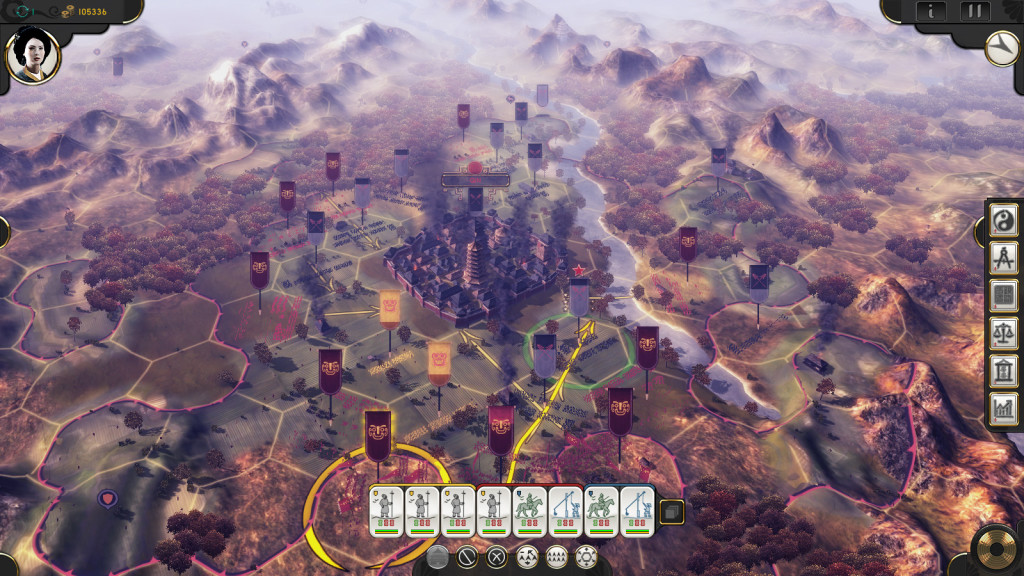
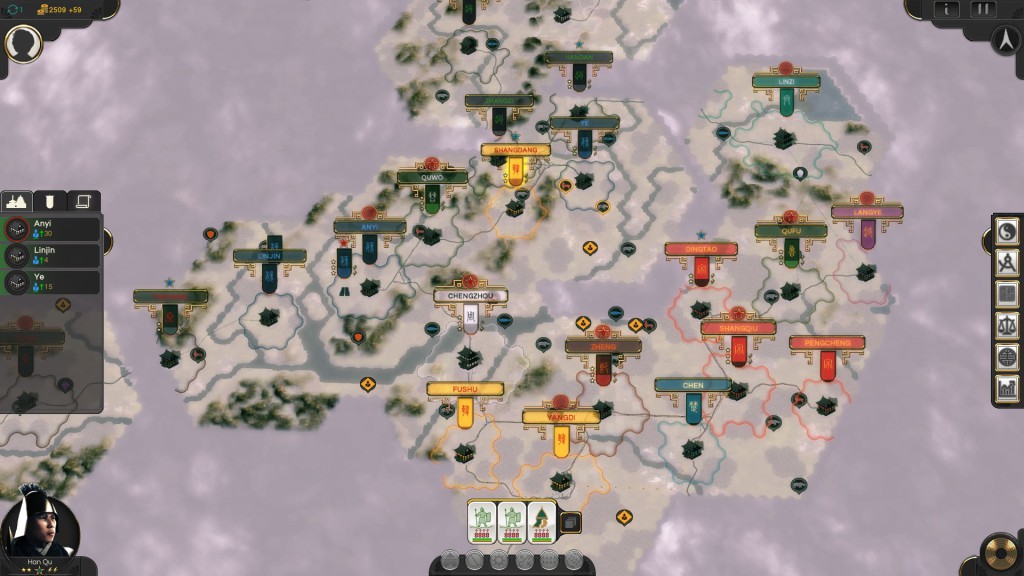
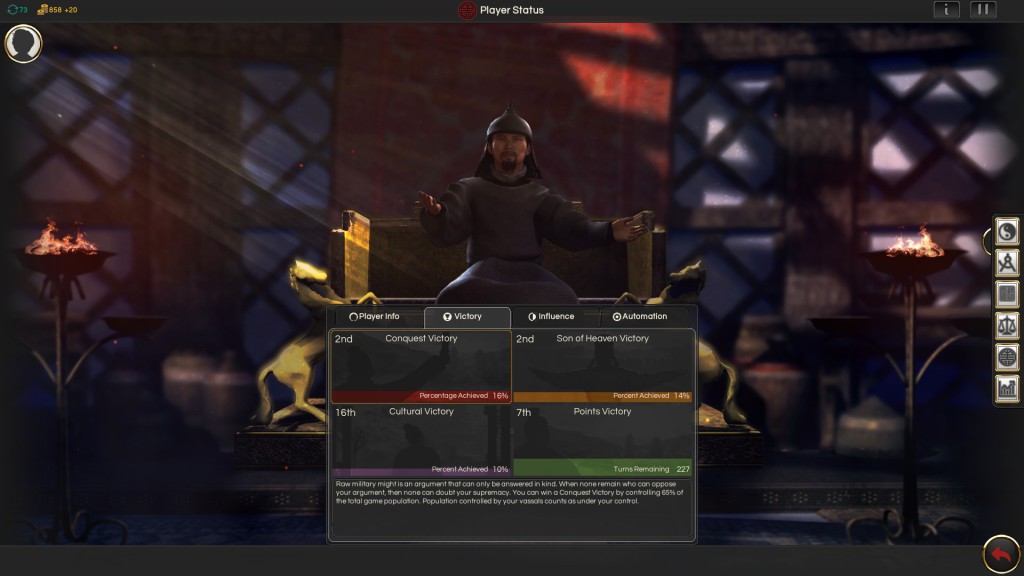
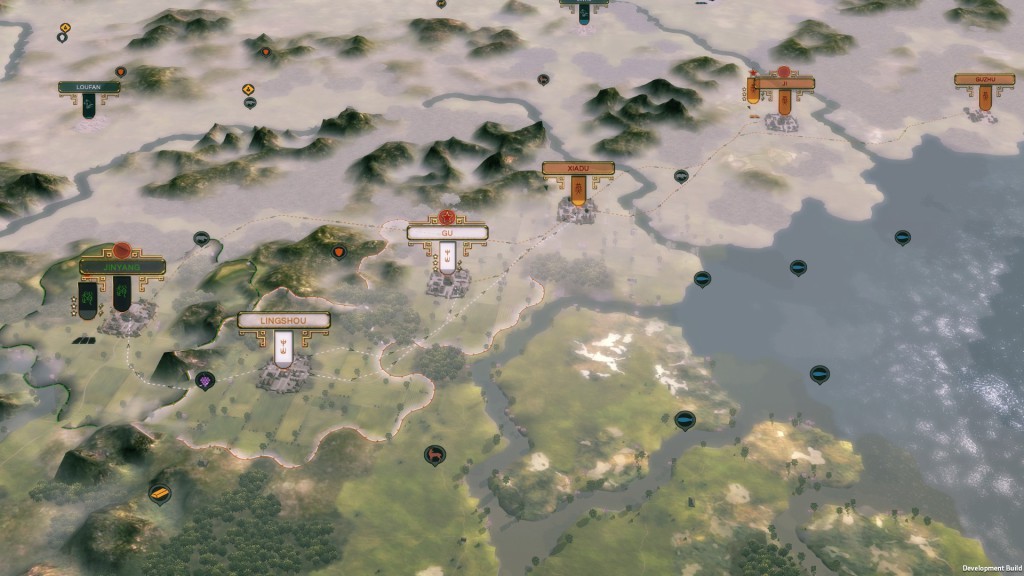


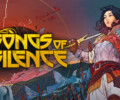

No Comments